外研版(2019) 必修第一册 Unit 2 Exploring English Vocabulary & Starting out 课件 (39张ppt)
文档属性
| 名称 | 外研版(2019) 必修第一册 Unit 2 Exploring English Vocabulary & Starting out 课件 (39张ppt) |
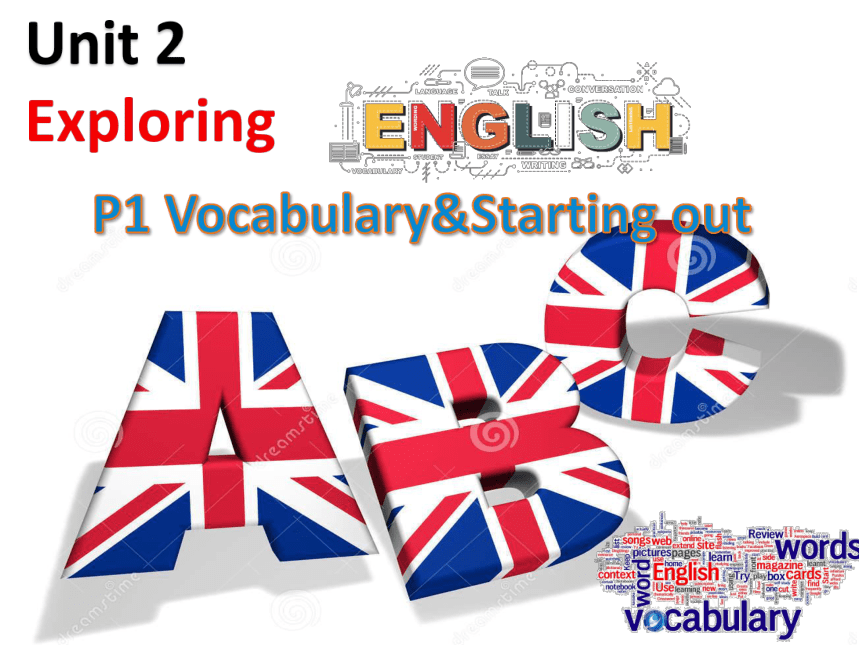
|
|
| 格式 | pptx | ||
| 文件大小 | 48.3MB | ||
| 资源类型 | 教案 | ||
| 版本资源 | 外研版(2019) | ||
| 科目 | 英语 | ||
| 更新时间 | 2022-09-21 12:49:12 | ||
图片预览

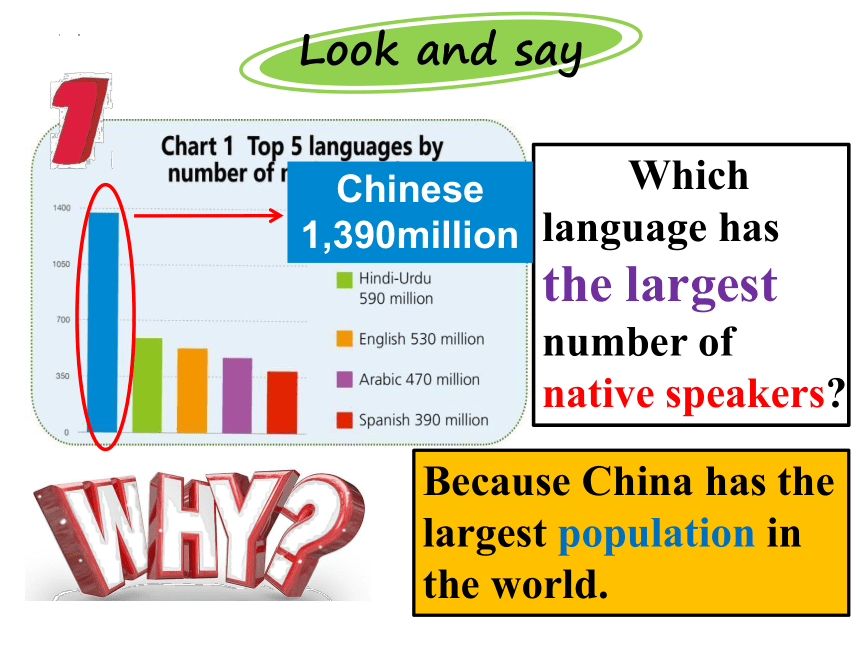
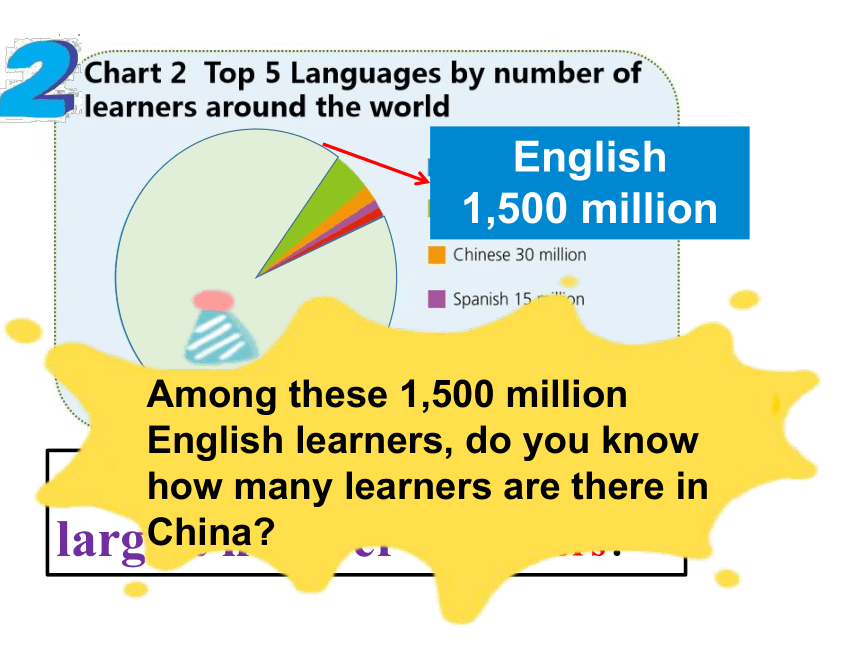
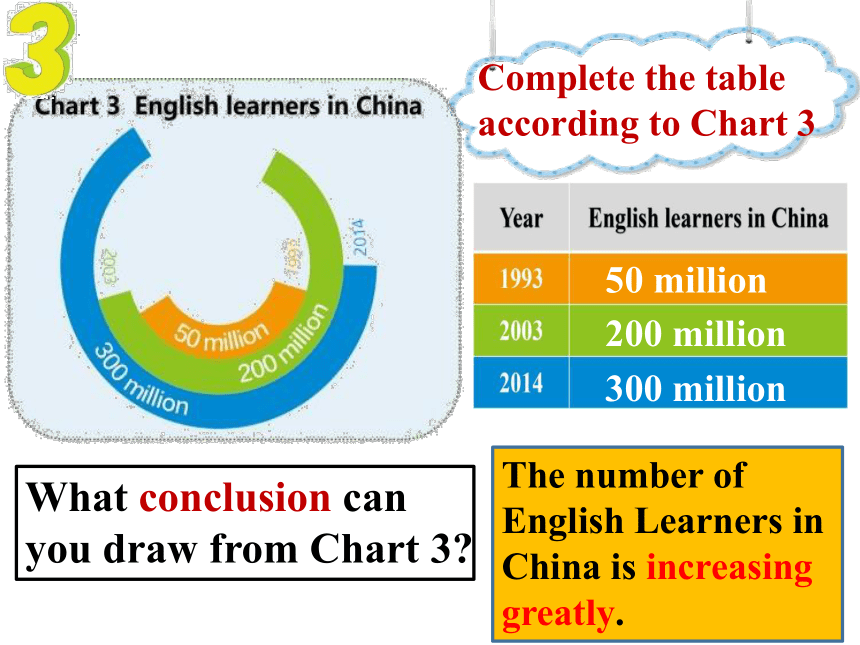

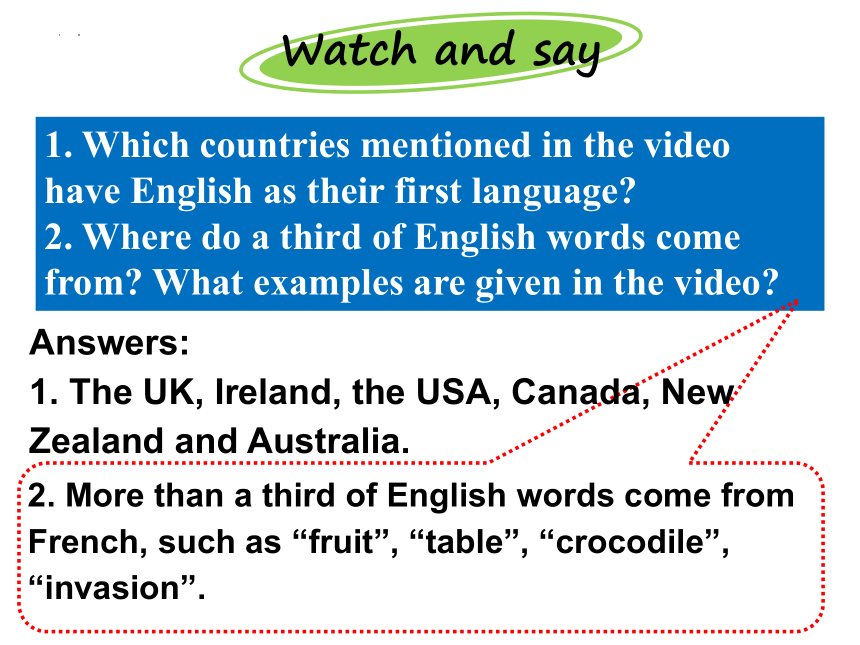
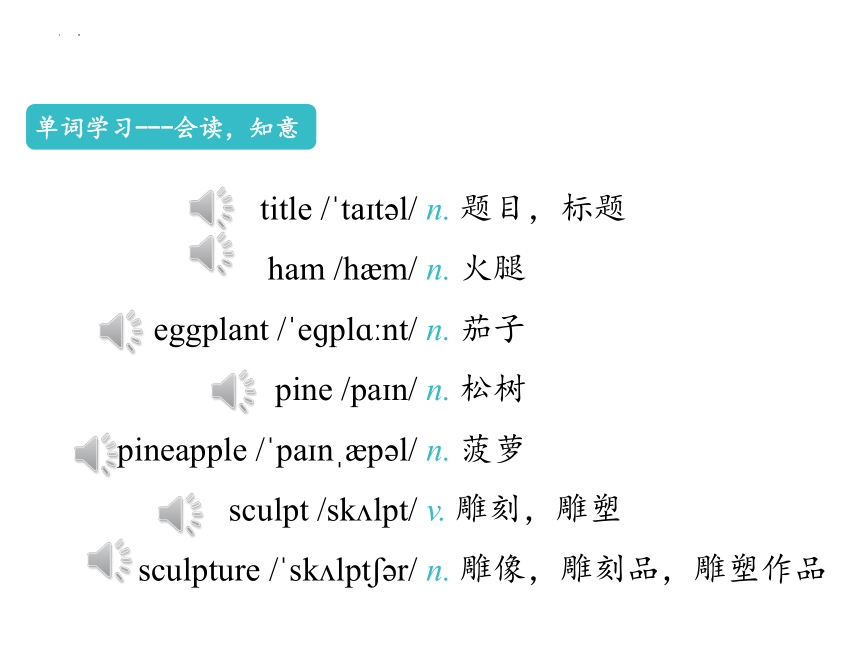
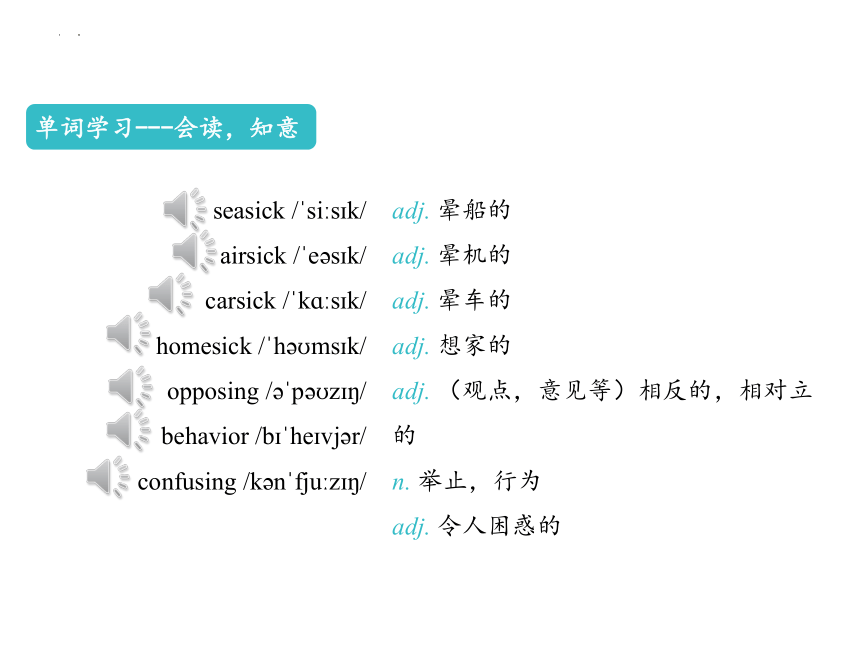
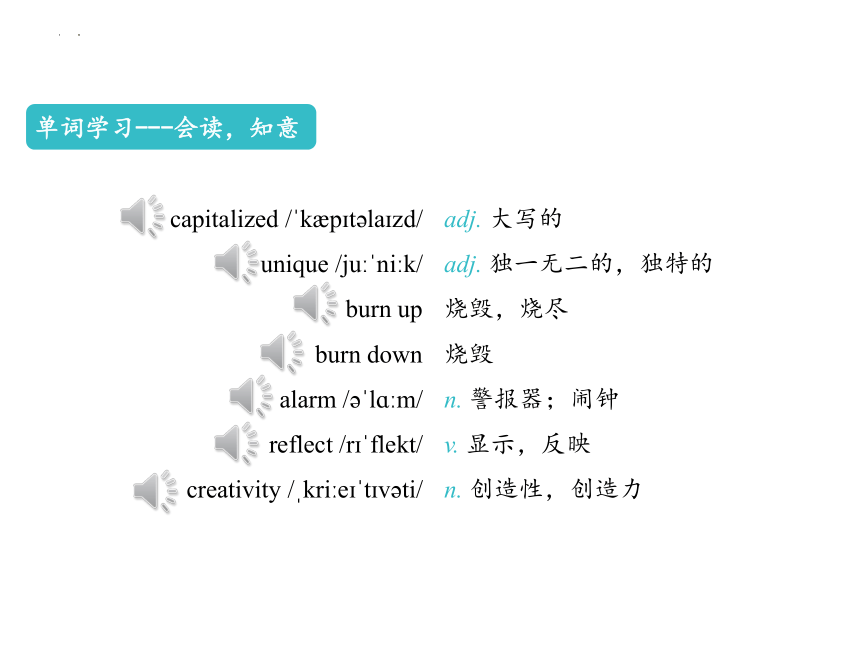
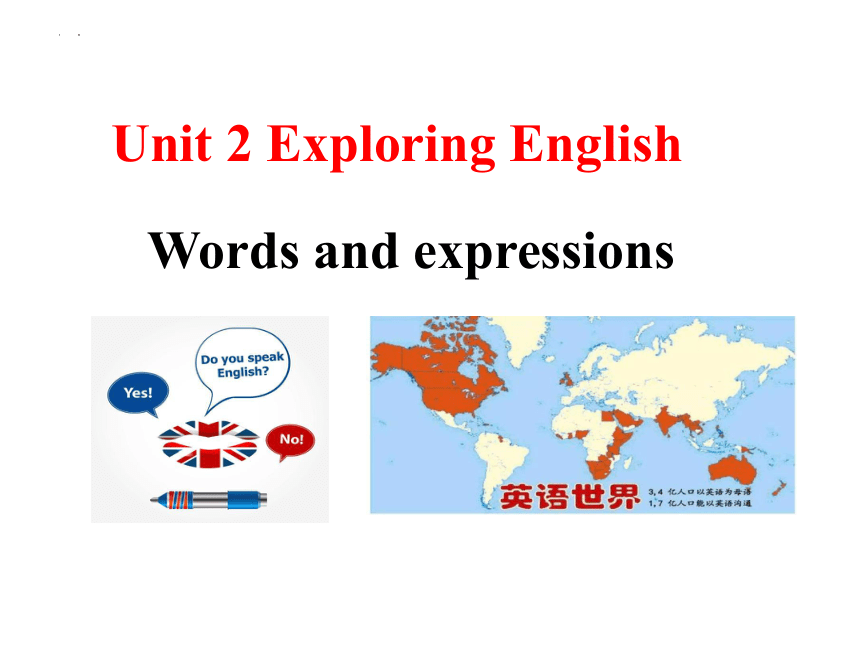
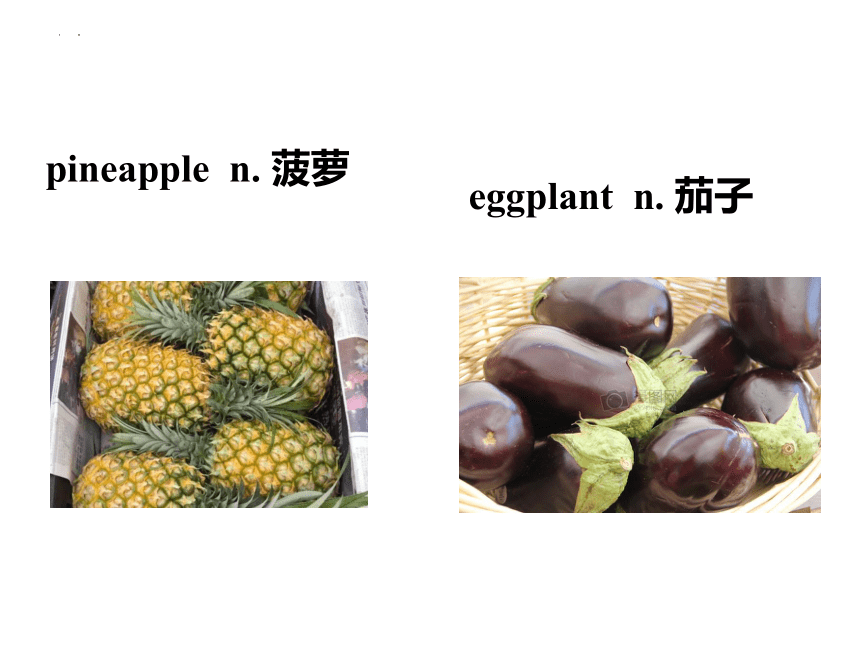

文档简介
(共39张PPT)
Unit 2
Exploring
P1 Vocabulary&Starting out
Which language has the largest number of native speakers
Look and say
Because China has the largest population in the world.
Chinese 1,390million
Which language has the largest number of learners
English
1,500 million
Among these 1,500 million English learners, do you know how many learners are there in China
Complete the table according to Chart 3
What conclusion can you draw from Chart 3
50 million
200 million
300 million
The number of English Learners in China is increasing greatly.
Watch and say
1. Which countries mentioned in the video have English as their first language
2. Where do a third of English words come from What examples are given in the video
Watch and say
1. Which countries mentioned in the video have English as their first language
2. Where do a third of English words come from What examples are given in the video
2. More than a third of English words come from French, such as “fruit”, “table”, “crocodile”, “invasion”.
Answers:
1. The UK, Ireland, the USA, Canada, New Zealand and Australia.
title / ta t l/
ham /h m/
eggplant / eɡplɑ nt/
pine /pa n/
pineapple / pa n p l/
sculpt /sk lpt/
sculpture / sk lpt r/
n. 题目,标题
n. 火腿
n. 茄子
n. 松树
n. 菠萝
v. 雕刻,雕塑
n. 雕像,雕刻品,雕塑作品
单词学习---会读,知意
seasick / si s k/
airsick / e s k/
carsick / kɑ s k/
homesick / h ms k/
opposing / p z /
behavior /b he vj r/
confusing /k n fju z /
adj. 晕船的
adj. 晕机的
adj. 晕车的
adj. 想家的
adj. (观点,意见等)相反的,相对立的
n. 举止,行为
adj. 令人困惑的
单词学习---会读,知意
capitalized / k p t la zd/
unique /ju ni k/
burn up
burn down
alarm / lɑ m/
reflect /r flekt/
creativity / kri e t v ti/
adj. 大写的
adj. 独一无二的,独特的
烧毁,烧尽
烧毁
n. 警报器;闹钟
v. 显示,反映
n. 创造性,创造力
单词学习---会读,知意
Unit 2 Exploring English
Words and expressions
pineapple n. 菠萝
eggplant n. 茄子
pine n. 松树
ham n. 火腿
sculpture [’sk lpt (r)] n. 雕像,雕塑品,雕刻品 sculpt [sk lpt] v. 雕刻,雕塑
opposing [ ’p z ] adj. 对立的,相竞争的,对抗的
同根词:oppose [ p z]
opposition [ p z n] n.
v. 反对,抵制,阻挠
反对,反抗,对抗
behavior [b ’he vj (r)]n. 行为,性能
behave [b ’he v]v. 表现;有礼貌
confused [k n fju zd]
adj. 糊涂的,迷惑的
confusing [k n’fju z ]
adj. 难以理解的,不清楚的
confusion [k n’fju n]
n. 不确定,困惑
Everyone's fingerprints are unique.
unique
[ju’ni k]
unique [ju ni k]
adj. 唯一的,独一无二的
Everyone's fingerprints are unique.
每个人的指纹都是独一无二的。
a unique talent
奇才
The koala is unique to Australia. 树袋熊是澳大利亚独有的。
He was a uniquely gifted teacher. 他是个天赋异禀的天才教师。
reflect [r flekt] v. 反映,映出(影像);反射(声、光、热等)
派生词:reflection [r ’flek n] n. 映像;反映,显示
reflective [r ’flekt v] adj.
fog n. 雾
frog n. 青蛙
creativity [ kri e t v ti]n. 创造力,创造性
同根词:creative [kri e t v]adj. 创造(性)的,创作的
同根词:create [kri e t] v. 创造,创作
remind [r ’ma nd]
v. 提醒,使想起
派生词:reminder [kri e t v]
n. 引起回忆的事物
comment [’k ment]
n. 议论,评论,解释
v. 表达意见
派生词:commentary [’k m ntri]
n. 实况报道,现场解说
negative
positive
burn up 烧毁,烧尽
burn down 烧毁
adventure
n.冒险;冒险经历
misadventure
n.事故;灾难
entrance
entry
n.入口;大门
exit
n.出口
fomal adj.正式的
infomal adj.非正式的
American and British English
theater /theatre
store/shop
cab/taxi
apartment n.公寓套房
flat
gas n.汽油
petrol
elevator n. 电梯
lift
subway n.地铁
underground
tube
highway n. 公路
motorway n.高速公路
拓展词汇
1. ______________n.行为,举止→behave v.表现,举止
2. ______________ adj.令人困惑的→confuse v.使困惑→confused adj.感到困惑的→______________n.困惑,疑惑
2.reflect v.显示,反映→______________ n.反映,思考,反射
4.creativity n.创造性,创造力→______________ adj.有创造性的,有创造力的→______________ n.创造力,创造
behavior
confusing
confusion
reflection
creative
creation
5.visible adj.看得见的,可见的→______________ adj.看不见的
6. ______________ n.(学生、教师等的)互访,交换v.交换,互换,兑换→change v.& n.改变
7. ______________ n.一套住房,公寓套房→______________ adj.分离的,隔离的 adv.分开地,成碎片→part n.部分,角色,零部件
8.forward adv.向前→______________ adv.向后
invisible
exchange
apartment
apart
backward
重点短语
1. _______________________________________ 做某事有困难
2. ____________________________ 在某人的业余时间
3. ____________________________ 谈到;说起
4. ____________________________ 从……向外望去
5. ____________________________ 对……感到诧异
6. ____________________________ 烧毁
7. ____________________________ 填写(表格)等
8. __________________________ 给机械上发条,使(活动、会议等)结束
have trouble/difficulty in doing sth
in one’s free time
speaking of
look out of
wonder at
burn down
fill in
wind up
9. ___________________________ 偶然发现;偶遇
10. __________________________ 谨慎行事;避免冒险
11. __________________________ (尤指因喉咙)说话困难
12. __________________________ 期待;盼望
13. __________________________ 结果是
14. __________________________ 令某人惊讶的是
15. __________________________ 意识到
come across
play safe
have a frog in one’s throat
look forward to
turn out
to one’s astonishment
be aware of
Homework
预习Understanding ideas,在文中划出新单词与短语并完成课文理解学案。
Thanks~
课文预读
Neither Pine nor Apple in Pineapple
Have you ever asked yourself why people often have trouble learning English I hadn’t, until one day my five-year-old son asked me whether there was ham in a hamburger. There isn’t. This made me realize that there’s no egg in eggplant either. Neither is there pine nor apple in pineapple. This got me thinking how English can be a crazy language to learn.
For example, in our free time we can sculpt a sculpture and paint a painting, but we take a photo. And when we are traveling we say that we are in the car or the taxi, but on the train or bus! While we’re doing all this traveling, we can get seasick at sea, airsick in the air and carsick in a car, but we don’t get homesick when we get back home. And speaking of home, why aren’t homework and housework the same thing
If “hard” is the opposite of “soft”, why are “hardly” and “softly” not an opposing pair If harmless actions are the opposite of harmful actions, why are shameless and shameful behaviors the same
When we look out of the window and see rain or snow, we can say “it’s raining” or “it’s snowing”. But when we see sunshine, we can’t say “it’s sunshining”.
Even the smallest of words can be confusing. When you see the capitalized “WHO” in a medical report, do you read it as the “who” in “Who’s that ” What about “IT” and “US”?
You also have to wonder at the unique madness of a language in which a house can burn up as it burns down, in which you fill in a form by filling it out, and in which an alarm is only heard once it goes off!
English was invented by people, not computers, and it reflects the creativity of the human race. That is why when the stars are out, they are visible, but when the lights are out, they are invisible. And that is why when I wind up my watch, it starts, but when I wind up this passage, it ends.
Unit 2
Exploring
P1 Vocabulary&Starting out
Which language has the largest number of native speakers
Look and say
Because China has the largest population in the world.
Chinese 1,390million
Which language has the largest number of learners
English
1,500 million
Among these 1,500 million English learners, do you know how many learners are there in China
Complete the table according to Chart 3
What conclusion can you draw from Chart 3
50 million
200 million
300 million
The number of English Learners in China is increasing greatly.
Watch and say
1. Which countries mentioned in the video have English as their first language
2. Where do a third of English words come from What examples are given in the video
Watch and say
1. Which countries mentioned in the video have English as their first language
2. Where do a third of English words come from What examples are given in the video
2. More than a third of English words come from French, such as “fruit”, “table”, “crocodile”, “invasion”.
Answers:
1. The UK, Ireland, the USA, Canada, New Zealand and Australia.
title / ta t l/
ham /h m/
eggplant / eɡplɑ nt/
pine /pa n/
pineapple / pa n p l/
sculpt /sk lpt/
sculpture / sk lpt r/
n. 题目,标题
n. 火腿
n. 茄子
n. 松树
n. 菠萝
v. 雕刻,雕塑
n. 雕像,雕刻品,雕塑作品
单词学习---会读,知意
seasick / si s k/
airsick / e s k/
carsick / kɑ s k/
homesick / h ms k/
opposing / p z /
behavior /b he vj r/
confusing /k n fju z /
adj. 晕船的
adj. 晕机的
adj. 晕车的
adj. 想家的
adj. (观点,意见等)相反的,相对立的
n. 举止,行为
adj. 令人困惑的
单词学习---会读,知意
capitalized / k p t la zd/
unique /ju ni k/
burn up
burn down
alarm / lɑ m/
reflect /r flekt/
creativity / kri e t v ti/
adj. 大写的
adj. 独一无二的,独特的
烧毁,烧尽
烧毁
n. 警报器;闹钟
v. 显示,反映
n. 创造性,创造力
单词学习---会读,知意
Unit 2 Exploring English
Words and expressions
pineapple n. 菠萝
eggplant n. 茄子
pine n. 松树
ham n. 火腿
sculpture [’sk lpt (r)] n. 雕像,雕塑品,雕刻品 sculpt [sk lpt] v. 雕刻,雕塑
opposing [ ’p z ] adj. 对立的,相竞争的,对抗的
同根词:oppose [ p z]
opposition [ p z n] n.
v. 反对,抵制,阻挠
反对,反抗,对抗
behavior [b ’he vj (r)]n. 行为,性能
behave [b ’he v]v. 表现;有礼貌
confused [k n fju zd]
adj. 糊涂的,迷惑的
confusing [k n’fju z ]
adj. 难以理解的,不清楚的
confusion [k n’fju n]
n. 不确定,困惑
Everyone's fingerprints are unique.
unique
[ju’ni k]
unique [ju ni k]
adj. 唯一的,独一无二的
Everyone's fingerprints are unique.
每个人的指纹都是独一无二的。
a unique talent
奇才
The koala is unique to Australia. 树袋熊是澳大利亚独有的。
He was a uniquely gifted teacher. 他是个天赋异禀的天才教师。
reflect [r flekt] v. 反映,映出(影像);反射(声、光、热等)
派生词:reflection [r ’flek n] n. 映像;反映,显示
reflective [r ’flekt v] adj.
fog n. 雾
frog n. 青蛙
creativity [ kri e t v ti]n. 创造力,创造性
同根词:creative [kri e t v]adj. 创造(性)的,创作的
同根词:create [kri e t] v. 创造,创作
remind [r ’ma nd]
v. 提醒,使想起
派生词:reminder [kri e t v]
n. 引起回忆的事物
comment [’k ment]
n. 议论,评论,解释
v. 表达意见
派生词:commentary [’k m ntri]
n. 实况报道,现场解说
negative
positive
burn up 烧毁,烧尽
burn down 烧毁
adventure
n.冒险;冒险经历
misadventure
n.事故;灾难
entrance
entry
n.入口;大门
exit
n.出口
fomal adj.正式的
infomal adj.非正式的
American and British English
theater /theatre
store/shop
cab/taxi
apartment n.公寓套房
flat
gas n.汽油
petrol
elevator n. 电梯
lift
subway n.地铁
underground
tube
highway n. 公路
motorway n.高速公路
拓展词汇
1. ______________n.行为,举止→behave v.表现,举止
2. ______________ adj.令人困惑的→confuse v.使困惑→confused adj.感到困惑的→______________n.困惑,疑惑
2.reflect v.显示,反映→______________ n.反映,思考,反射
4.creativity n.创造性,创造力→______________ adj.有创造性的,有创造力的→______________ n.创造力,创造
behavior
confusing
confusion
reflection
creative
creation
5.visible adj.看得见的,可见的→______________ adj.看不见的
6. ______________ n.(学生、教师等的)互访,交换v.交换,互换,兑换→change v.& n.改变
7. ______________ n.一套住房,公寓套房→______________ adj.分离的,隔离的 adv.分开地,成碎片→part n.部分,角色,零部件
8.forward adv.向前→______________ adv.向后
invisible
exchange
apartment
apart
backward
重点短语
1. _______________________________________ 做某事有困难
2. ____________________________ 在某人的业余时间
3. ____________________________ 谈到;说起
4. ____________________________ 从……向外望去
5. ____________________________ 对……感到诧异
6. ____________________________ 烧毁
7. ____________________________ 填写(表格)等
8. __________________________ 给机械上发条,使(活动、会议等)结束
have trouble/difficulty in doing sth
in one’s free time
speaking of
look out of
wonder at
burn down
fill in
wind up
9. ___________________________ 偶然发现;偶遇
10. __________________________ 谨慎行事;避免冒险
11. __________________________ (尤指因喉咙)说话困难
12. __________________________ 期待;盼望
13. __________________________ 结果是
14. __________________________ 令某人惊讶的是
15. __________________________ 意识到
come across
play safe
have a frog in one’s throat
look forward to
turn out
to one’s astonishment
be aware of
Homework
预习Understanding ideas,在文中划出新单词与短语并完成课文理解学案。
Thanks~
课文预读
Neither Pine nor Apple in Pineapple
Have you ever asked yourself why people often have trouble learning English I hadn’t, until one day my five-year-old son asked me whether there was ham in a hamburger. There isn’t. This made me realize that there’s no egg in eggplant either. Neither is there pine nor apple in pineapple. This got me thinking how English can be a crazy language to learn.
For example, in our free time we can sculpt a sculpture and paint a painting, but we take a photo. And when we are traveling we say that we are in the car or the taxi, but on the train or bus! While we’re doing all this traveling, we can get seasick at sea, airsick in the air and carsick in a car, but we don’t get homesick when we get back home. And speaking of home, why aren’t homework and housework the same thing
If “hard” is the opposite of “soft”, why are “hardly” and “softly” not an opposing pair If harmless actions are the opposite of harmful actions, why are shameless and shameful behaviors the same
When we look out of the window and see rain or snow, we can say “it’s raining” or “it’s snowing”. But when we see sunshine, we can’t say “it’s sunshining”.
Even the smallest of words can be confusing. When you see the capitalized “WHO” in a medical report, do you read it as the “who” in “Who’s that ” What about “IT” and “US”?
You also have to wonder at the unique madness of a language in which a house can burn up as it burns down, in which you fill in a form by filling it out, and in which an alarm is only heard once it goes off!
English was invented by people, not computers, and it reflects the creativity of the human race. That is why when the stars are out, they are visible, but when the lights are out, they are invisible. And that is why when I wind up my watch, it starts, but when I wind up this passage, it ends.
